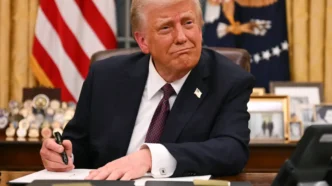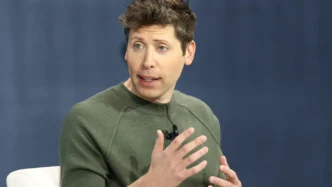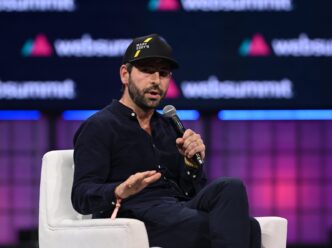What started as a suspected power grab by Elon Musk and allies within the Department of Government Efficiency (DOGE) to reshape the US Copyright Office now appears to have backfired. In a dramatic twist, the Trump copyright office firings have empowered figures deeply critical of Big Tech — not its defenders.
Last week, former President Donald Trump abruptly fired Librarian of Congress Carla Hayden and Register of Copyrights Shira Perlmutter. The move came just days after the Copyright Office released a report stating that training AI on copyrighted materials, especially when producing competing expressive content, likely falls outside fair use boundaries. The timing raised eyebrows, with many seeing the firings as a direct response orchestrated by pro-tech forces — especially Elon Musk and David Sacks, the so-called “AI & Crypto Czar” of the Trump camp.
Initially, the presence of two men delivering letters to assume acting leadership roles at the Library of Congress was read as a DOGE-led takeover. But those men — Paul Perkins and Brian Nieves — turned out to be Trump loyalists from the MAGA wing, not tech industry allies. Perkins, a DOJ fraud prosecutor under the first Trump administration, and Nieves, a former House Judiciary lawyer linked to Big Tech investigations, now control key leadership roles. Above them sits Todd Blanche, Trump’s personal lawyer from his 2024 Manhattan criminal trial, now acting as the Librarian of Congress.
As one government lobbyist put it, “Blanche is there to stick it to tech.”
MAGA and Democrats Unite Against AI Copyright Free-for-All
The firings sparked a swift response from conservative populists and Democrats alike. Their shared concern: the belief that Silicon Valley, led by figures like Musk, engineered Perlmutter’s ouster to smooth the path for AI companies to train large language models using copyrighted material without permission.
“This isn’t about innovation — it’s about theft,” said Mike Davis, a Trump-aligned antitrust advisor. “Taking everyone’s content to feed AI models is not fair use. It’s copyright infringement.” After Davis posted about the firings on Truth Social, Trump reposted it — signaling approval.
The backlash wasn’t limited to MAGA voices. Rep. Joe Morelle (D-NY) called the Copyright Office’s report “a refusal to rubber-stamp Elon Musk’s efforts to mine copyrighted content.” Sen. Ron Wyden (D-OR) questioned the legality of Trump’s move altogether, pointing out that the president likely has no authority to fire the Librarian of Congress or appoint their replacements — especially since the role sits within the legislative branch.
Under federal law, the Librarian of Congress — not the president — appoints the Register of Copyrights. That makes this apparent reshuffle not just politically controversial, but potentially unconstitutional. And with no directive from Congress yet, the Library of Congress is in limbo.
While the report in question warned about potential overreach by AI developers, it notably urged caution, not immediate government intervention. It acknowledged licensing negotiations happening in various sectors and suggested a wait-and-see approach. Still, the optics of firing top officials right after its release were unmistakable.
Now, with MAGA hardliners like Todd Blanche, Paul Perkins, and Brian Nieves in place, the result is an unexpected blow to pro-AI tech forces. These new appointees are unlikely to support Silicon Valley’s agenda. In fact, they’re widely viewed as adversarial to AI companies’ push for broad “fair use” exemptions.
As one insider put it, “You don’t always get to choose who comes in after the person you pushed out. And sometimes the replacement is worse for your goals.”
A Brewing Constitutional Crisis Over Copyright and AI
The Trump copyright office firings have also brought renewed scrutiny to the legal structure of independent agencies. The Library of Congress predates modern federal agencies and resides within the legislative branch, making the president’s authority over its leadership murky at best. Legal scholars warn that this episode may trigger a broader constitutional challenge about executive overreach.
In the meantime, the AI industry finds itself in a precarious position. It’s built on legal interpretations of fair use that are being tested in courts — and in the court of public opinion. Losing an ally like Perlmutter could slow efforts to normalize AI training on copyrighted materials, especially if her replacements are hostile to the concept altogether.
For now, the firings have created chaos. Neither Perkins nor Nieves has a background in copyright law, and their appointments have not been formally recognized by Congress or the Library itself. But symbolically, the move signals a sharp pivot — one that may reshape how copyright law adapts to the age of generative AI.













